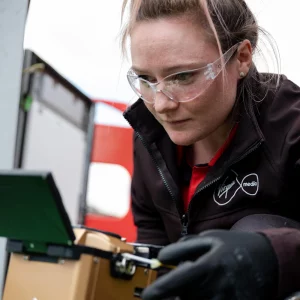Sponsored Links
ISP Chief Warns Ofcoms BT Price Cut Might Not Lower UK Rural Broadband Costs
Posted: 22nd Jan, 2011 By: MarkJ

 The Chief Technology Officer (CTO) for business ISP Timico UK, Trefor Davies, has cautioned those whom currently live in remote or rural areas (11.7% of premises, Market 1) not to expect any significant reductions after Ofcom cut the price that BT can charge for broadband services.
The Chief Technology Officer (CTO) for business ISP Timico UK, Trefor Davies, has cautioned those whom currently live in remote or rural areas (11.7% of premises, Market 1) not to expect any significant reductions after Ofcom cut the price that BT can charge for broadband services.On Thursday the communications regulator, Ofcom UK, proposed to reduce, by between 10.75% and 14.75% below inflation, the price that BT Wholesale charges ISPs for broadband services in Market 1 regions (here). These are typically rural telephone exchanges where BT is the only supplier of wholesale broadband services.
Still, these days, unless you're a very light user, bandwidth is where most of the real world broadband costs come from and those remain fairly high (especially on BT's older 20CN broadband connectivity products and platforms). Ofcom is not targeting bandwidth.
Timico's CTO, Trefor Davies, commented (blog):
"I’m not quite sure that it will achieve the effect Ofcom think it will achieve though. Yes we might find retail ISPs lowering their prices marginally for customers in these areas. Consumer ISPs already charge rock bottom prices so a cut of 15% off a low number won’t make much difference.
Also ISPs buy bulk backhaul bandwidth from BTW. This is not specific to particular exchanges or locales. For example Timico’s bandwidth comes into two docklands locations from all our customers all over the country. We would not be able to say “this customer gets more bandwidth because he is one of the lucky ones living in an area with reduced costs.
A big chunk of the cost is in the bandwidth used so whilst a reduction in line rental is good a reduction in bandwidth costs would be better."
"I’m not quite sure that it will achieve the effect Ofcom think it will achieve though. Yes we might find retail ISPs lowering their prices marginally for customers in these areas. Consumer ISPs already charge rock bottom prices so a cut of 15% off a low number won’t make much difference.
Also ISPs buy bulk backhaul bandwidth from BTW. This is not specific to particular exchanges or locales. For example Timico’s bandwidth comes into two docklands locations from all our customers all over the country. We would not be able to say “this customer gets more bandwidth because he is one of the lucky ones living in an area with reduced costs.
A big chunk of the cost is in the bandwidth used so whilst a reduction in line rental is good a reduction in bandwidth costs would be better."
Davies anticipates that competition may ultimately drive down end-user prices in related areas, albeit only by a little. However he warned that there was also a "fair chance that ISPs will just pocket the additional margin ... and [a] maintain homogenous pricing policy across the whole country".
It's also possible that BT may simply adjust some of its other prices upwards to compensate, thus cancelling out any potential benefit. After all, forcing BT's rural prices lower doesn't solve the underlying problem that it still costs more to deliver services into remote areas.
In reality the biggest improvement, at least economically speaking, could come from TalkTalk's medium-term plan to skirt the edges of Market 1 by extending its unbundled network coverage from 81% (2,003 LLU exchanges) to 93% (2,703 LLU exchanges) of the UK population. If they can make that work then other ISPs could follow.
Search ISP News
Search ISP Listings
Search ISP Reviews
Latest UK ISP News








Cheap BIG ISPs for 100Mbps+
150,000+ Customers | View More ISPs
Cheapest ISPs for 100Mbps+
Modest Availability | View More ISPs
Latest UK ISP News
Helpful ISP Guides and Tips
Sponsored Links
The Top 15 Category Tags
- FTTP (6803)
- BT (3882)
- Politics (3076)
- Business (2767)
- Openreach (2664)
- Building Digital UK (2514)
- Mobile Broadband (2476)
- FTTC (2142)
- Statistics (2130)
- 4G (2093)
- Virgin Media (2026)
- Ofcom Regulation (1780)
- 5G (1733)
- Fibre Optic (1604)
- Wireless Internet (1595)
Sponsored
Copyright © 1999 to Present - ISPreview.co.uk - All Rights Reserved - Terms , Privacy and Cookie Policy , Links , Website Rules






























